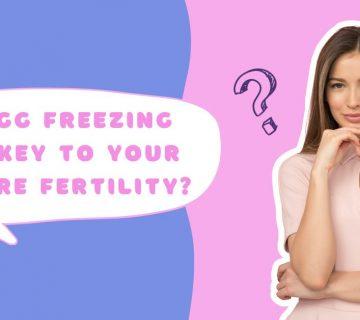Don’t Be Misled: Physical Fitness Doesn’t Guarantee Egg Health
Many young women, even those in peak physical condition who can run marathons, often make the mistake of assuming their egg health is equally robust. This misconception can lead to disappointment when trying to conceive, as even fit women in their late 30s might discover they have a diminished ovarian reserve, meaning fewer eggs available for fertilization.
Why the Misconception?
The key factor to understand is that physical fitness and ovarian health are not directly linked. While maintaining good physical health is essential for overall wellbeing, it doesn’t guarantee the quality or quantity of your eggs. This is because your body’s chronological age and your biological clock, which dictates your reproductive health, are not always in sync.

The Importance of AMH Testing
The only way to truly assess your ovarian health is by consulting a doctor and undergoing an AMH (Anti-Müllerian Hormone) test. This simple blood test measures the level of this hormone, which is directly linked to the number of remaining eggs in your ovaries.
Taking Control and Making Informed Decisions
For women considering delaying pregnancy, it’s crucial to proactively monitor your ovarian health. Starting after the age of 30, regular AMH level tests can provide valuable insights into your remaining egg reserve. Knowing this information empowers you to make informed choices about your fertility options, such as freezing your eggs or adjusting your pregnancy timeline.
Free Second Opinion with a Fertility Expert
Concerned about your egg health or have questions about fertility options? Don’t hesitate to reach out for a free second opinion with a qualified fertility expert via email. This can provide valuable peace of mind and help you navigate your fertility journey with confidence.



No comment